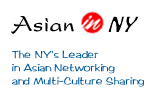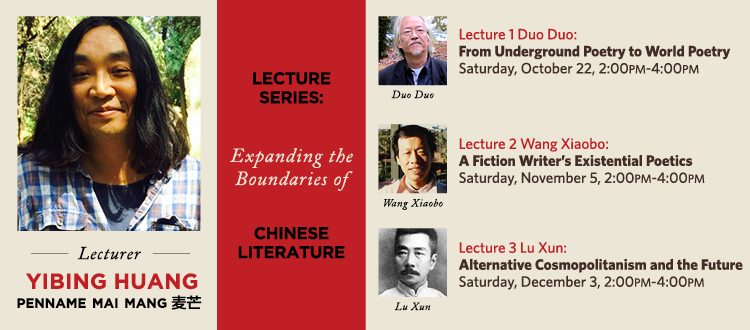Saturday, November 05 02pm to 04pm
China Institute
40 Rector Street, (2nd Floor), New York, NY 10006
What are the various boundaries within and without contemporary Chinese poetry? What separates contemporary Chinese poetry from its classical or even modern counterpart? Where does Chinese poetry stand vis-à-vis the so-called world literature that is often dictated by an unequal East/West power structure? Who are the true pioneers and seers of modern or contemporary Chinese poetry other than the names we have been normally told? Can contemporary Chinese poetry further expand its boundaries and find alternative identities and voices that are at once open, experimental, radical and significant in a globalized world? With such questions in mind, these three lectures by poet and professor Yibing Huang will introduce three famous, even canonical yet often misunderstood Chinese writers and re-examine their distinctive relationships with contemporary Chinese poetry.
These lectures will be conducted in English.
Lecture 2 (November 5)
Wang Xiaobo: A Fiction Writer’s Existential Poetics
Wang Xiaobo (1952-1997) started writing back in the 1970s but remained an outsider to the Chinese literary scene throughout the 1980s. He only started gaining attention in the 1990s as the author of a body of highly unorthodox and controversial works of fiction and essay writing. And it was only after his untimely death in 1997 that his most important fictional works, entitled The Golden Age, The Silver Age and The Bronze Age, were published in collected volumes as The Trilogy of Our Time, which have had an everlasting impact upon young Chinese readers over the last twenty years. Although primarily hailed as a fiction writer, Wang Xiaobo discussed poetry, poetics, philosophy, translation, and world literature extensively in his writing, which offered a stellar example of contemporary existential lyricism that might also alter our own understanding of what poetry is or can be regardless of the language it is written in.
To register visit: http://www.chinainstitute.org






